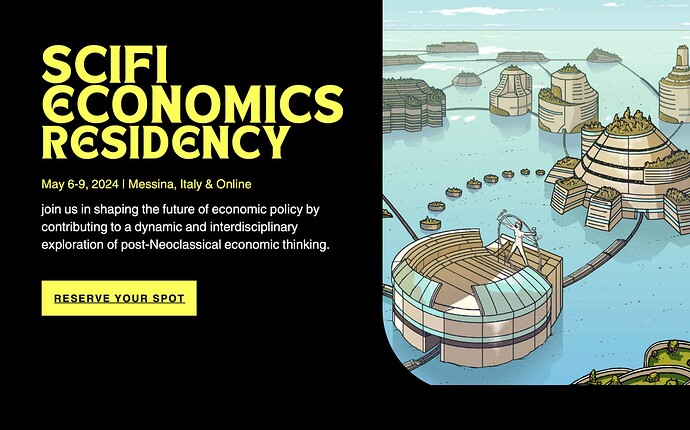@nadia, I do not have appropriate permission on Climate Gains, so I have to fall back on Edgeryders. Which is better anyway. I propose to replace this:
Vision and Theme:
In the backdrop of 2024, we find ourselves amidst a resurgence of post-neoclassical economic thought, with prominent thinkers such as Hickel, Raworth, Mazzucato, Kelton, Wray, Peters, and others paving the way for innovative concepts like degrowth, doughnut economics, mission economics, modern monetary theory, and ergodicity economics. The seminar seeks to build upon this momentum by bridging the gap between theoretical frameworks and tangible policy implementations.
To this, even more factual:
About
We are economists, social scientists, science fiction authors and artists. We are working on a description of the social and economic landscape of a near-future that succeeds in complying with the Paris agreement, and of the future history that gets us there. Think of it as a kind of model, but with narrative and argumentation instead of equations and spreadsheets (though we will use some of those too), in the spirit of Kim Stanley Robinson’s novel The Ministry for the Future.
In doing this, we are inspired by the new economic thinking we see coming to the fore in the last few years, developed by scholars such as (among many others) Ha-Joon Chang, Jason Hickel, Giorgos Kallis, Stephanie Kelton, Mariana Mazzucato, Kate Raworth, TImothée Parrique, Ole Peters, Thomas Piketty, Julia Steinberger, Randall Wray. Their work not only carries theoretical novelty: it comes with new and exciting policy instruments such as job guarantees and universal basic services, which give our policy makers new tools in the scramble to cope with climate change and our many current crises.
If it is too long, you can cut the last sentence (from “their work”). If if is still too long, you can cut the entire second paragraph.
Good to go for me.
Ping: @Nic010 @zazizoma @giacomo.pinaffo
